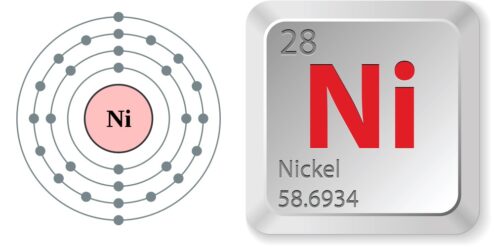Introduzione:
Nickel is a common trace element found in the earth’s crust. It is widely distributed in the environment and can be found in soil, water, air, and in our food. While nickel is necessary in trace amounts for the human body, excessive intake can lead to health problems. This article aims to explore the presence of nickel in one of the most consumed beverages worldwide – tea. We will delve into the truth about nickel content in tea, the process of nickel absorption in tea plants, the comparison of nickel content in different types of tea, the potential health effects, and ways to minimize nickel intake from tea consumption.
Understanding Nickel: Its Presence in Food and Drinks
Nickel is a naturally occurring element that is found in various foods and drinks. It is absorbed by plants from the soil and can also enter our food chain through industrial pollution. Foods that are high in nickel include nuts, chocolate, soy products, and certain types of fish and shellfish. In beverages, nickel can be found in tap water, beer, and wine. The nickel content in food and drinks can vary greatly depending on the nickel concentration in the soil and water where the food is grown or the beverage is produced.
Does Tea Contain Nickel? Unveiling the Truth
Yes, tea does contain nickel. The presence of nickel in tea is due to the absorption of this element from the soil by the tea plant. However, the nickel content in tea leaves is usually low and varies depending on the type of tea, the soil where the tea plant is grown, and the manufacturing process. It’s important to note that the nickel content in tea is generally lower compared to other foods and beverages.
The Process of Nickel Absorption in Tea Plants
Tea plants, like other plants, absorb minerals and trace elements from the soil through their roots. The absorption of nickel by tea plants is influenced by various factors such as the pH level of the soil, the presence of other minerals, and the type of soil. Acidic soils tend to increase the availability of nickel for plant uptake. Once absorbed, nickel is distributed throughout the plant, including the leaves, which are harvested to produce tea.
Analyzing the Nickel Content in Different Types of Tea
The nickel content can vary significantly among different types of tea. Green tea, for instance, is known to have a lower nickel content compared to black tea. This is because the processing of black tea involves fermentation, which can increase the nickel concentration. However, the nickel content in tea is generally low and is unlikely to pose a health risk for most people.
How Nickel in Tea Can Affect Your Health
While nickel is necessary in trace amounts for the human body, excessive intake can lead to nickel allergy or systemic nickel allergy syndrome (SNAS). Symptoms can include skin rash, itching, and gastrointestinal problems. However, it’s important to note that the nickel content in tea is generally low and most people can tolerate it without any adverse effects. Individuals with nickel allergy or SNAS should consult with their healthcare provider for dietary advice.
Ways to Minimize Nickel Intake from Tea Consumption
To minimize nickel intake from tea consumption, you can opt for teas with lower nickel content such as green tea. It’s also advisable to use filtered or bottled water for brewing tea as tap water can contain nickel. Furthermore, avoid oversteeping your tea as this can increase the release of nickel from the tea leaves. Lastly, consuming a balanced diet can help ensure that your intake of nickel from all sources stays within the recommended limits.
Conclusioni:
Nickel is a trace element that is present in various foods and drinks, including tea. The nickel content in tea is generally low and varies depending on several factors. While excessive intake of nickel can lead to health problems, the amount of nickel in tea is unlikely to pose a health risk for most people. However, individuals with nickel allergy or SNAS should be cautious and consult with their healthcare provider for dietary advice.
Per approfondire:
- Nickel in Tea: This study provides detailed information about the nickel content in different types of tea.
- Nickel Allergy: Mayo Clinic provides comprehensive information about nickel allergy, its symptoms, causes, and treatments.
- Nickel in Food and Drinks: Healthline provides a list of foods and drinks that are high in nickel.
- Systemic Nickel Allergy Syndrome: This article provides in-depth information about SNAS, its symptoms, diagnosis, and treatment.
- Minimizing Nickel Exposure: This study provides strategies to minimize nickel exposure from diet and environment.


